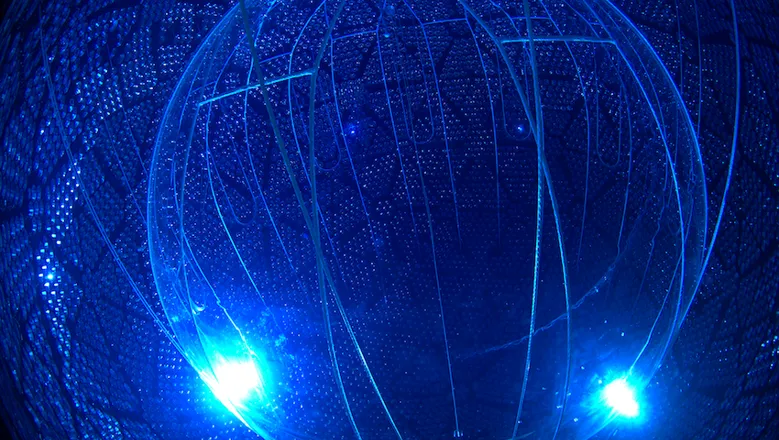The King's Physicists received international recognition for their contribution to the discovery

King's researchers have contributed to a technical break-through in detecting neutrinos from nuclear reactors. The Sudbury Neutrino Observatory (SNO+) detector is the first to successfully measure reactor anti-neutrinos in a pure water detector, demonstrating that a cheap and non-toxic medium can be used to monitor nuclear reactors.
Neutrinos are fundamental particles, with no charge and very tiny masses. These "mysterious and elusive particles", in the words of Stephen Hawking, are the most abundant massive particle in our Universe.
Dr Jeanne Wilson alongside Professor Francesca Di Lodovico and PhD student Katharine Dixon all from the Department of Physics, contributed to this measurement of anti-neutrino particles made by the SNO+, a collaboration between an international team of scientists, universities, and scientific organisations, located in Sudbury, Canada.
SNO+ detected the signal of neutrinos from nuclear reactors through the Cherenkov effect - energy perceived as a blue glow emitted when electrically charged particles move faster than the speed of light in a specific medium, in this case. when the detector was filled with pure water.
Dr Jeanne Wilson, a Reader in Particle Physics at King's who is the analysis coordinator for the SNO+ collaboration, said:
This is a great result for SNO+ demonstrating that reactor anti-neutrinos can be detected in a pure water detector. The findings are testimony to the huge amount of work carried out by the whole collaboration, operating the detector at very low thresholds and performing detailed analysis of this 190-day data set to extract a handful of signals to find the evidence."– Dr Jeanne Wilson
With 190 days of data, SNO+ obtained strong evidence for the identification of neutrinos from nuclear reactors at least 240 km away. The finding offers a potential solution for making neutrino detectors from a nontoxic material that is easy to handle and inexpensive to obtain, which is crucial for using the technology in auditing the world's nuclear reactors.
The SNO+ detector has now been filled with liquid scintillator in preparation to search for neutrino-less double beta decay - a type of radioactive decay, and to measure other types of neutrinos, including solar, geoneutrinos, and reactor neutrinos.
The successful discovery shows that SNO+ is a precision detector that promises to produce more exciting results in the future as we prepare to carry out experimentation aimed at testing the nature of the neutrino." – Dr Jeanne Wilson
The team from King's College London are part of the Experimental Particle & Astroparticle Physics (EPAP) group, which aims to address some of the major questions in our understanding of matter through studying the nature of fundamental particles.






